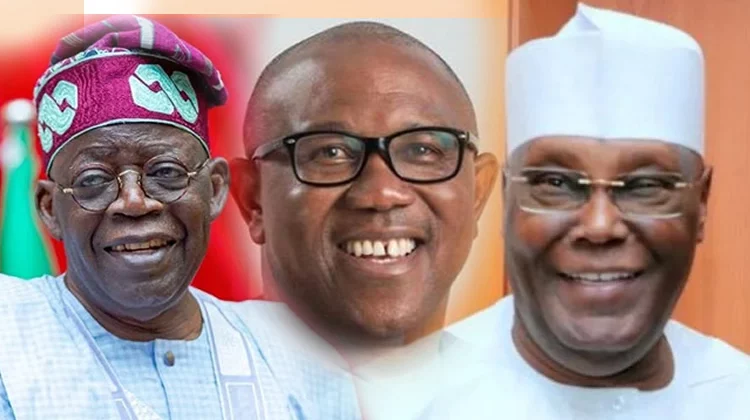About 87.2 million Nigerians will tomorrow march out to polling units across the country and cast their votes to elect their next president in the 7th presidential election since the return of democracy in 1999.
The Independent National Electoral Commission (INEC) announced on Thursday that a total of 87,209,007 permanent voter cards (PVCs) were collected by eligible registrants ahead of the 2023 general election in which the 5th president of Nigeria in the current democratic dispensation will emerge.
In the past few weeks up to today, being the eve of the presidential and National Assembly elections, the country had been enveloped in apprehension and anxiety, even as tension has pervaded the land, as the citizens prepare for what has been describing it as the most intriguing polls analysts believe would either improve or wield back the country’s burgeoning democracy.
Read Also: 2023 Elections: We Are Ready – INEC Chairman
Africa Today News, New York reports that a total of 18 candidates will participate in tomorrow’s presidential poll, but the electorate would likely be out to determine the fate of four major contenders: Bola Ahmed Tinubu of the governing All Progressives Congress (APC), Atiku Abubakar of the People’s Democratic Party (PDP), Peter Obi of the Labour Party and Rabiu Musa Kwankwaso of the New Nigeria People’s Party.
Since 1999 when it morphed from years of very tough and dictatorial military rule, Nigeria has sustained periodic elections, but the 2023 polls which begins tomorrow are the first in which Nigerians born in 1999 will participate in as eligible voters.
Although INEC had said it registered 9,518,188 new voters, bringing the total number to 93,522,272, indicating a massive interest in voting by Nigerians, only about 82 million Nigerians who collected their PVCs will vote in tomorrow’s polls.
But there is tension in the country, with most citizens saying they are disturbed about the likelihood of the elections being marred by insecurity, including banditry, terrorist attacks and abductions that have continued unabated.

